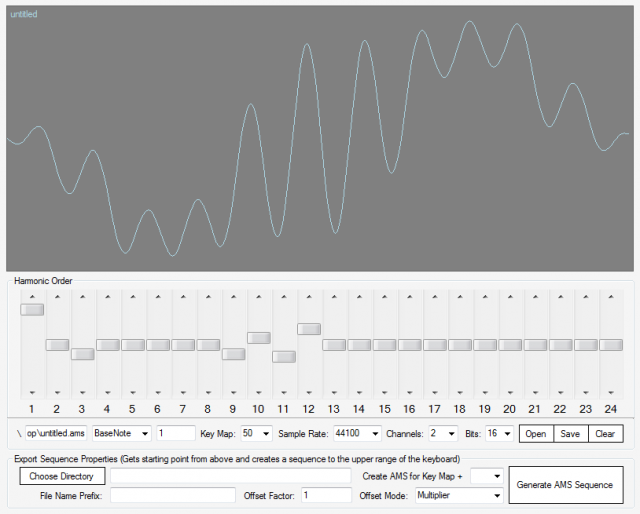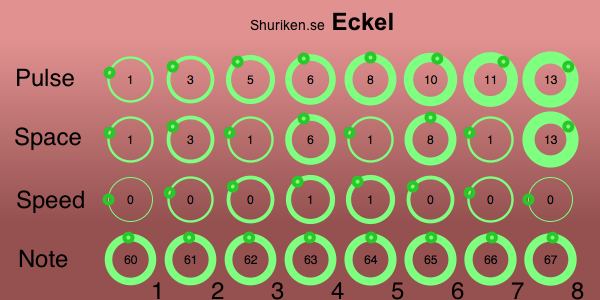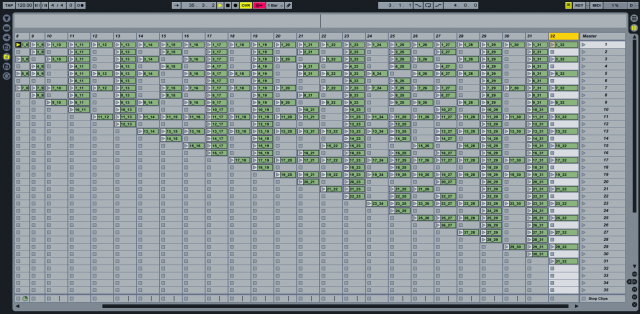Ready to make your Ableton Live pattern programming a bit more polyrhythmic with the power of math?
In Monday’s reflections and round-up of cycles and circles, I mentioned Euclidean evenness and Godfried Toussaint’s research. The basic idea is that a mathematical algorithm for spacing pulses has a lot in common with traditional preferences for polyrhythms spanning everything from rock hits to conga patterns and musical cultures around the world.
Reader Tony Wheeler has turned those patterns into MIDI clips so you can drop patterns into Ableton Live. Drum patterns and dance music are obvious applications, but this could be an idea starter for melodic patterns or music in a variety of idioms.
Each individual pattern will sound like an isolated cycle; it’s often when you put them together that they’re most compelling. Here’s an example; Tony added a regular bass drum just to make things more grounded (it actually calls attention to the asymmetry of the other patterns).

Tony has another terrific tool for Ableton Live that generates the AMS files used by Operator to tune oscillators to alternative pitches, as we covered previously:
Free Utility Makes Endless Oscillators for Ableton Live Simpler, Sampler
Direct link: AMS File Utility for Ableton Live
And for harmonic experimentation, see the Circle of Fifths Chord Resource:
Circle of Fifths Chord Resource in Ableton Live
This is all fairly academic stuff, but the funny thing about it is there’s nothing stopping you from making either a dance music hit or some experimental new kind of music that doesn’t sound like it came from Ableton.
Alternative tunings for Operator oscillators and Euclidean polyrhythms? There are many tools aside from Ableton that will work, too, but whatever your tool, this could be a great way to jump-start a musical idea. Airport layover, meet musical productivity.

Updated: Another great way to go is the Eckel VST plug-in, also donationware. It works on Mac (Universal) and Windows, and since you can dial up parameters, may be easier to use than the MIDI clips, depending on your workflow – especially since you can still choose pitch. (Or, hey, grab both!) Thanks to John Larsby for the reminder:
Shuriken.se: VST – Eckel
For Dr. Toussaint’s part, you can glance over his syllabus on Discrete Mathematics — and find a reference to Tony’s Ableton experiments.
Grab the download and read more on this topic (free, donations welcome):
Euclidean Rhythm MIDI File Resource in Ableton Live [Age of the Wheel]
